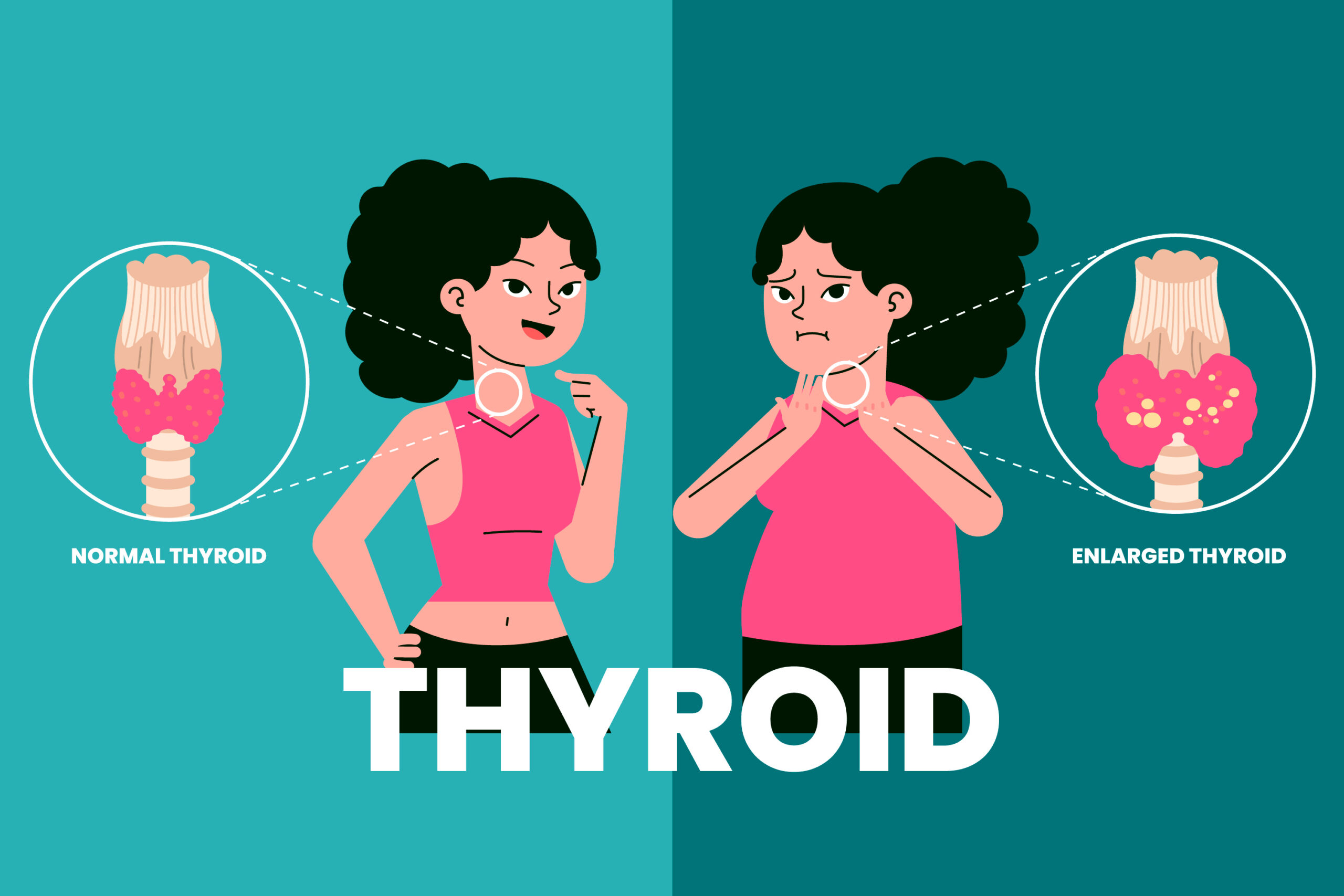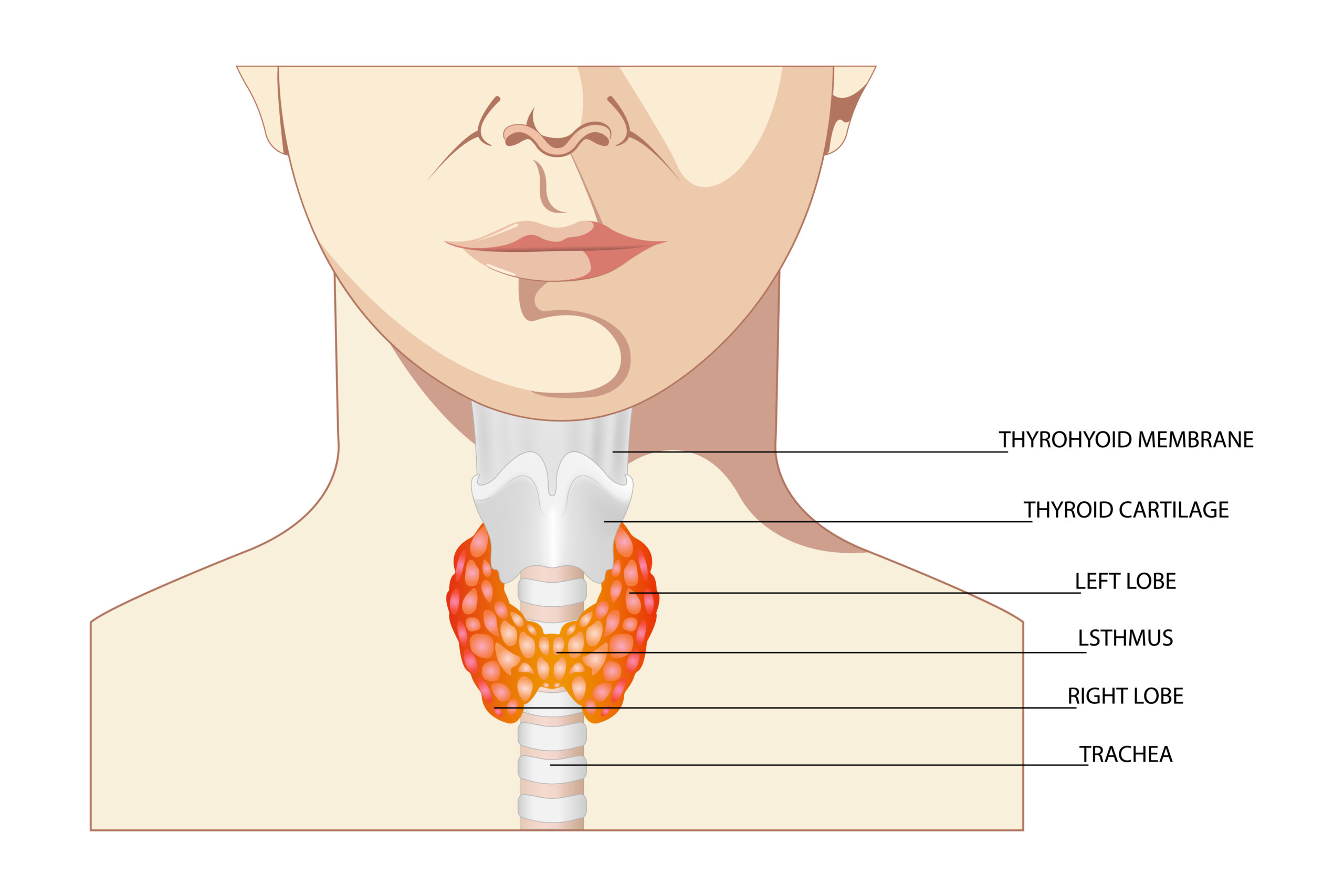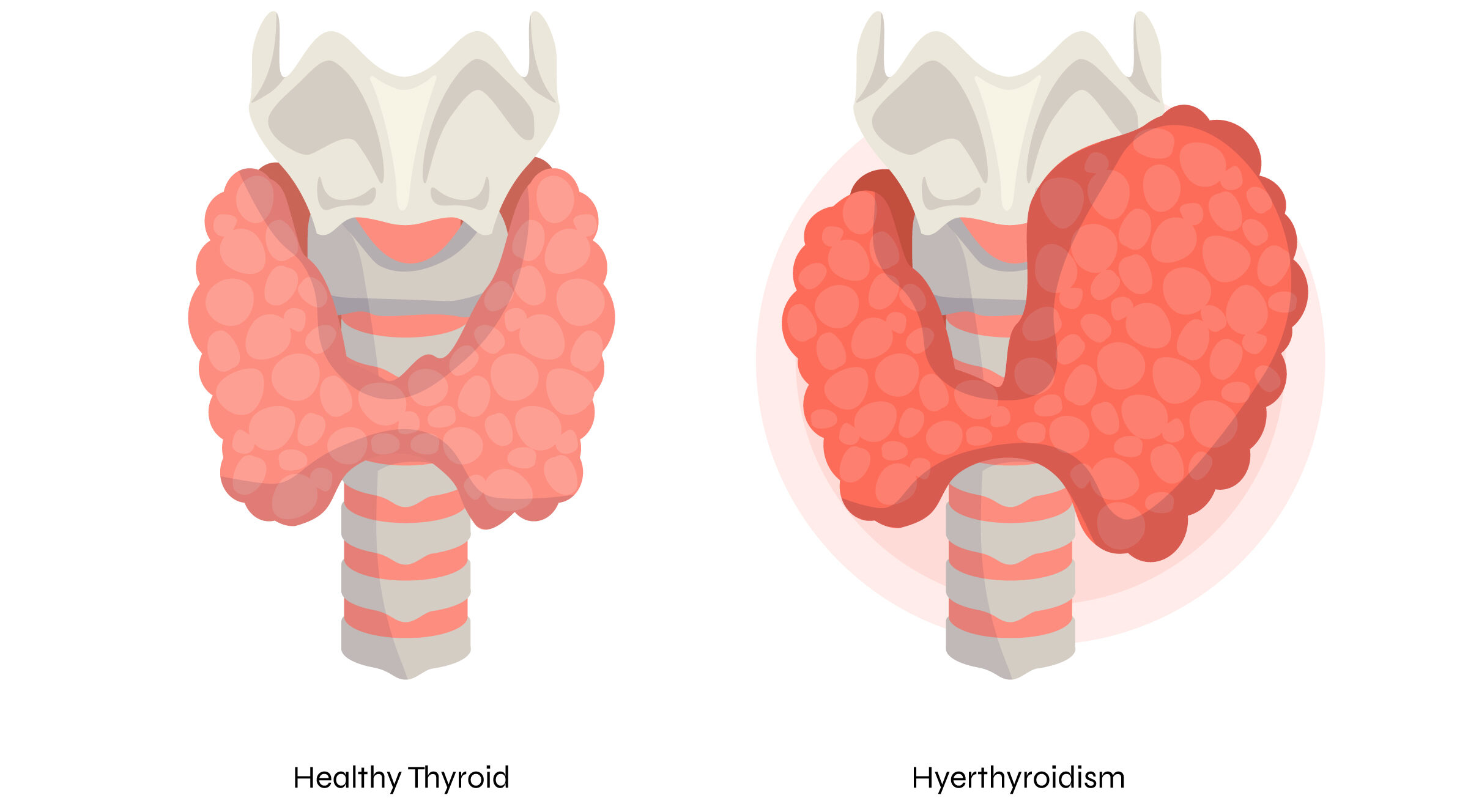Are you feeling tired and bloated at all times?
- 1 What are thyroid glands, and what do they do?
- 2 Importance of Thyroid Gland
- 2.1 Hormone Production:
- 2.2 Metabolic Regulation:
- 2.3 Development and Growth:
- 2.4 Brain Function:
- 2.5 Regulation of Heart Function:
- 2.6 Temperature Regulation:
- 2.7 Reproductive Health:
- 2.8 Energy Production:
- 2.9 Maintenance of Skin, Hair, and Nails:
- 2.10 Regulation of Metabolism of Nutrients:
- 3 FAQ:
- 3.1 Will the thyroid gland affect the fertility of women>
- 3.2 When should we assess the thyroid gland:
- 4 Bottom Line:
The thyroid is a crucial gland located in the neck, and it plays a vital role in managing the body’s different systems. The hormones that this gland secretes will regulate the body’s metabolism, energy level, and the individual’s growth and development. Owing to specific metabolic reasons and medical conditions, the thyroid gland can malfunction and result in different thyroid problems. Experts in endocrinology will diagnose the various thyroid problems and treat them accordingly.
What are thyroid glands, and what do they do?
The thyroid is a small butterfly-shaped gland in the larynx in the front of the neck. It produces thyroxine hormone, which plays a significant role in regulating the heart rate, body temperature, and body metabolism. The thyroid gland produces two primary hormones, namely thyroxine and tri-iodothyronine. The gland also secretes calcitonin, which helps the bones to process calcium for its structural integrity. Common thyroid problems include a variety of disorders that result in the gland producing too little or too much thyroid hormone. Some thyroid issues are also autoimmune.
Common thyroid problems:
It is essential to understand the common thyroid problems to get treatment accordingly. Treatment modalities for these problems involve medications, surgical management, and other therapies. The common problems of the thyroid gland are as follows.
- Hyperthyroidism: In this condition, the thyroid glands will produce excess thyroxine. The symptoms of this disease include arrhythmia, sweating, protruding eyes, weight loss, and nervousness.
- Hypothyroidism: In this condition, the thyroid glands will produce lower than required thyroid hormone levels. The common symptoms of hypothyroidism include depression, tiredness, weight gain, stunted growth, and abnormal bone development. The most common cause of this condition is autoimmune conditions.
- Hashimoto’s thyroiditis: This is also an autoimmune disease that causes thyroid gland inflammation. It can cause a swelling in the neck, secondary to the enlarged thyroid gland.
- Thyroid tumours are non-cancerous small growths that form in the inner cell layer of the thyroid gland. These tumours start to produce thyroxine and cause hyperthyroidism. Experts in endocrinology suggest surgery to handle this condition.
- Cancers of the thyroid: Cancerous growth in the thyroid gland happens secondary to radiation exposure to the neck, head, and chest. It is possible to treat the cancers of the thyroid gland successfully.
Importance of Thyroid Gland
Here are some key aspects of the importance of the thyroid gland:
Hormone Production:
The primary function of the thyroid gland is to produce and release hormones into the bloodstream. The two main hormones produced by the thyroid are thyroxine (T4) and triiodothyronine (T3).
These hormones are essential for regulating the body’s metabolism, influencing the rate at which cells produce energy. Proper metabolism is crucial for maintaining a healthy weight and energy levels.
Metabolic Regulation:
Thyroid hormones play a central role in controlling the body’s metabolic rate. They affect how quickly the body uses energy, regulates temperature, and processes nutrients. Imbalances in thyroid function can lead to metabolic disorders, such as hypothyroidism (underactive thyroid) or hyperthyroidism (overactive thyroid).
Development and Growth:
Thyroid hormones are critical for the normal growth and development of tissues, organs, and bones, especially during infancy and childhood. They play a key role in the maturation of the nervous system and the development of the brain.
Brain Function:
The thyroid gland influences cognitive function and mood. Inadequate thyroid hormone levels can lead to difficulties in concentration, memory, and mental clarity. Severe thyroid disorders may even contribute to depression and anxiety.
Regulation of Heart Function:
Thyroid hormones significantly impact heart rate and the strength of heart contractions. An imbalance in thyroid function can lead to cardiovascular issues, including changes in heart rate, blood pressure, and cholesterol levels.
Temperature Regulation:
Thyroid hormones help regulate body temperature. People with an underactive thyroid may experience sensitivity to cold, while those with an overactive thyroid may be more sensitive to heat.
Reproductive Health:
Thyroid function is closely linked to reproductive health. It plays a role in regulating menstrual cycles, fertility, and pregnancy. Thyroid disorders, if left untreated, can lead to complications during pregnancy and affect fetal development.
Energy Production:
The thyroid gland influences how efficiently the body produces and uses energy. Thyroid hormones affect the conversion of nutrients into usable energy, and an imbalance can result in fatigue, weakness, or increased energy levels.
Maintenance of Skin, Hair, and Nails:
Thyroid hormones contribute to skin, hair, and nails health. Changes in thyroid function can lead to dry skin, hair loss, and brittle nails.
Regulation of Metabolism of Nutrients:
The thyroid gland influences the metabolism of carbohydrates, fats, and proteins. Imbalances can lead to weight gain or weight loss, depending on whether the thyroid is underactive or overactive.
In conclusion, the thyroid gland is a vital organ with a wide range of functions that impact various physical and mental health aspects. Regular check-ups and prompt treatment of thyroid disorders are essential to ensure this crucial gland’s proper functioning and maintain overall well-being.
FAQ:
Will the thyroid gland affect the fertility of women>
Yes, thyroid issues can affect fertility and the menstrual cycle in women, especially with hypothyroidism.
When should we assess the thyroid gland:
According to experts in endocrinology, the thyroid is an essential gland for the human body. It is essential to assess its functioning when one experiences the slightest change in the body, like bloating, feeling tired, etc. Other possible signs of a faulty thyroid gland are –
- Weight changes drastically, even though one’s habits remain the same. In hypothyroidism, there is a gain in weight. Whereas in hyperthyroidism, the person tends to lose weight.
- There will be visible changes in one’s appearance. They will start to feel weaker and will have brittle hair. They might also suffer from thin and itchy skin, joint swelling, puffy faces, etc.
- There will be noticeable changes in the mood of the individual. Most of the common thyroid problems affect one’s mental wellness, and they will start to feel anxious, nervous, and irritable.
- The person will feel constantly tired. There might be difficulty in trying to fall asleep.
- It is also expected to experience muscle weakness.
- Women will tend to skip their period.
Bottom Line:
Experts in endocrinology suggest undergoing thyroid diagnosis even if these symptoms are not there. Most of the time, doctors detect the lump with no signs during a physical examination. A healthy thyroid is the key to a happy and peaceful life. So, a presumptive diagnosis is no harm, as far as the thyroid gland is concerned.




















